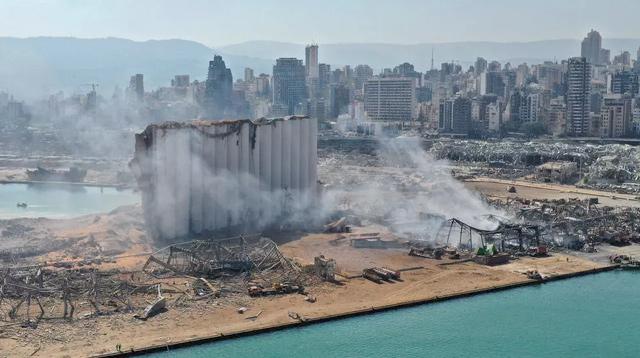- International News
- Tue-2021-07-13 | 02:25 pm

Nayrouz News Agency :
The judge investigating last year's deadly Lebanon port blast on Monday rejected a request by MPs for more evidence before immunity for three ex-ministers can be waived, a judicial source said.
Hundreds of tonnes of ammonium nitrate fertiliser exploded on the dockside at Beirut port last August 4, killing more than 200 people, injuring thousands and ravaging swathes of the capital.
Afterwards, it emerged that officials had known about the explosive substance being stored there unsafely for years.
Coming less than a month before the first anniversary of the tragedy, Monday's move may mean a new stand-off, with fears that the probe could be derailed by political interference.
Earlier this month, lead judge Tareq Bitar said he had demanded that parliament lift the immunity of ex-finance minister Ali Hasan Khalil, former public works minister Ghazi Zaiter and ex-interior minister Nohad Machnouk.
Bitar said he was looking at possible charges of "probable intent to murder" and "negligence".
Deputy speaker Elie Ferzli said parliament's administration and justice committee on Friday decided to "request all evidence available in the investigation, as well as all documents that prove suspicions".
He said the committee would reconvene once it had received a reply, to decide whether or not to waive immunity.
On Monday, the judicial source said no further documents would be forthcoming.
"The investigating judge rejected parliament's request... In an official letter he explained that he had already handed over all the documents that needed to be handed over," the source told AFP.
Protests
Lawyer and activist Nizar Saghieh said the committee's request on Friday went against the separation of powers between the judiciary and the legislature, and "violated the confidentiality of the investigation".
"They're just trying to buy time," he alleged.
On Monday, relatives of victims of the massive blast protested outside Machnouk's and Zaiter's homes, demanding that their immunity be lifted, the official ANI news agency reported.
Last month, rights groups including Amnesty International and Human Rights Watch called for a UN investigation into the explosion in light of the stalled investigation.
In February, Bitar's predecessor as lead judge in the probe was removed by a court, which questioned his impartiality because his home was damaged in the explosion.
The judge had in December issued charges against caretaker prime minister Hassan Diab and three former ministers for "negligence and causing death to hundreds", triggering outrage from politicians.
Rights activists condemned the court ruling as another example of the country's entrenched political class placing itself above the law.
Diab stepped down after the blast, but has stayed on as caretaker premier.
The economic crisis that started in the autumn of 2019, sparking mass street protests, has deepened over the past year.
Foreign donors have pledged millions of dollars in aid to the Lebanese people, but stopped short of offering any assistance to the state itself.













